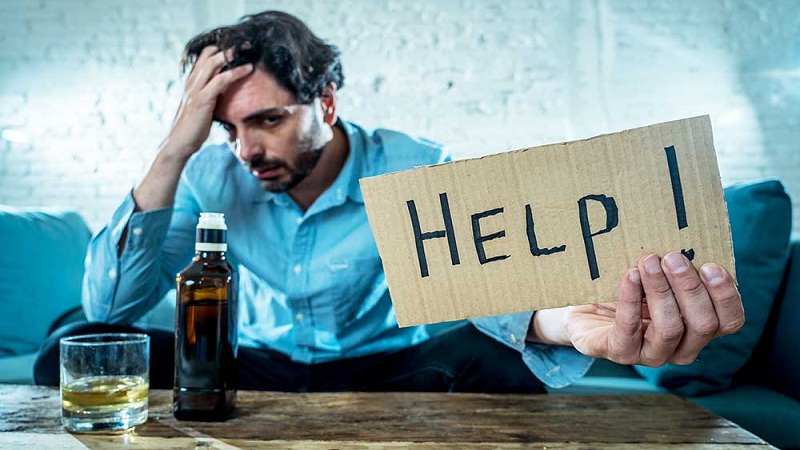About detox
The procedure of the detoxifications carried out under conditions of hospital service after identification of the substance (rapid test for the level of alcohol in the blood and drugs of narcotic drugs) which has caused habituation and poisoning of the organism. This step is mandatory for any type of subsequent treatment.
There are different methods to carry out detoxification: the use of medical preparations, infusion solutions, extracorporeal blood purification (plasmapheresis, hemosorption) and others.
The intensity and duration of detoxification are due to:
Type Of Substance Absorbed
- duration of its intake and dosage
- mode of taking
- presence or absence of concomitant pathologies.
The main objective of the procedure is the purification of the body from psychoactive substances and toxins formed during metabolic processes as well as the prevention of the development of abstinence syndrome and withdrawal syndrome. As a result of the latter, the serious condition of the patient develops which prevents the refusal of the consumption of alcohol, narcotics and other psychoactive substances.
The stage of psychic dependence of the drug addict, drug addict or alcoholic – this is the disturbance accompanied by the state of anxiety, depression, distress. The physical form of addiction involves serious changes in the functioning of vital organs and systems.
The abstinence syndrome is a set of disorders of a physical and psychological nature. Its symptoms are:
- insomnia
- anxiety
- distress
- aggressiveness
- weakness
- excessive sweating
Seizures and muscle aches disturbances in the functioning of the gastrointestinal tract, upset stomach, nausea, vomiting drops in blood pressure, increased heart rate and other manifestations.
Without a qualified medical help, at home, this period is up to 4 or 5 weeks. In special cases, serious disturbances in the functioning of the cardiac and respiratory system can lead to lethal outcome.
Any psychoactive substance, regardless of its type or species, affects all metabolic processes of the body in terms of biochemical reactions and the activity of the nervous system in case of prolonged intake. If the lifting is done independently, this period can last a few months.
Detoxification methods:
Correction of severe alcoholic disorders
Infusion therapy with compulsory administration of anticonvulsant drugs, sleeping pills, sedatives is carried out for the reduction of anxiety and fear (Diazepamum and other drugs).
For the elimination of the consequences of dehydration, it is mandatory to saturate the organism with magnesium, potassium and liquid. To normalize sleep and restore vitamin balance, vitamin intake is added.
Hepatoprotective drugs are prescribed for restoration of liver function and for its protection as well as neurometabolic therapy as prevention and treatment of encephalopathy.
Detoxification of the body
Complete detoxification is carried out with the use of neuroleptics, antispasmodics, anticonvulsants, sedatives, anesthetics and psychotropic preparations (in small doses). Ultra-rapid opioid detoxification UBOD (ultra-rapid opioid detoxification) is carried out over a period of 1 to 3 days.
The patient under anesthesia receives opioid receptor blockers (Naltrexonum, Naloxone). With this method of treatment, disorders of the autonomic nervous systems, cardiovascular and respiratory systems are possible. The operation is performed under the supervision of an anesthesiologist from the intensive treatment unit.
Pharmacological (medicated)
sleep Medicated or pharmacologic sleep is a safe means of eliminating opiate dependence (infra-painful means of restoration) but it is more prolonged. The abstinence syndrome passes during the patient’s artificial sleep. All vital functions are controlled by specialists. After the patient comes out of sleep, he has a psycho-correction and other procedures to go through to restore the body as a whole.
Indications and contraindications for intensive detoxification
The obligatory condition for carrying out the detoxification is the synthetic diagnosis and examination of the patient which includes:
- examination by a general practitioner and a psychiatrist
- blood and urine tests to determine drug content
- blood and urine count and complete
- biochemical analyzes of blood and urine
- test analysis to detect the presence of specific markers of HIV, hepatitis and other infections in the blood
- ECG (electrocardiogram)
- fluoroscopy of the lungs
- ultrasound of the organs of the abdominal cavity
Detoxification is postponed in case of:
- stroke
- vascular pathologies, in particular thrombosis
- acute infectious processes
- anemia (low hemoglobin level)
If any contraindications were identified during the diagnosis, they are first ruled out. Detoxification is possible after improvement of the patient’s condition depending on the results of the reexamination.
All stages of the examination, including diagnostics and instrumental analyzes, are carried out in one place.
Detoxification is only prescribed after an exhaustive examination of the patient and medical advice. A treatment plan is designed for each patient taking into account their current condition.
Procedures aimed at the complete purification of the organism from toxic and psychotropic preparations are carried out in the intensive treatment unit under the supervision of an anesthesiologist-resuscitator.
Doctors take all measures to avoid “withdrawal”, discomfort, pain, mental disorders and other unpleasant phenomena that accompany the process of exiting addiction.
For detoxification, only original drugs are used. The procedure is carried out in accordance with international format protocols. The intensive treatment units have expert equipment. Comfortable conditions for realization of full recovery are provided.
Doctors at the center have undergone special training and internships in the best clinics in Europe. Specialists have licenses and certificates.





